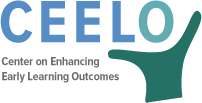Improving coordination between early childhood programs and elementary schools can help improve student outcomes in K-12 and beyond
Improving coordination between early childhood programs and elementary schools can help young learners transition to the new setting and improve outcomes in K-12 and beyond. The Every Student Succeeds Act of 2015 (ESSA) requires local education agencies (LEAs) receiving Title I funding to sign a written agreement coordinating with Head Start programs, and other early childhood programs if feasible, on students’ transition to the LEA in pre-K or kindergarten. Domains of coordination include:
- Joint professional development and technical assistance
- Coordinating services and communication
- Family engagement
- Curriculum and instruction
- Data and records sharing (including securely transferring students’ early childhood records to the LEA, with parental consent)
- Serving English learners
The District of Columbia has a unique school choice environment, with just over half of K-12 students enrolled in District of Columbia Public Schools (DCPS), and nearly half enrolled in public charter schools, of which there are 66 LEAs for federal purposes. Meanwhile, DC has the highest percentage of 3- and 4-year-olds enrolled in public preschool, with a mixed-delivery system including DCPS, charter schools, community-based organizations and six Head Start agencies (HSAs).
To support LEAs and HSAs in meeting the ESSA coordination requirements, the Office of the State Superintendent of Education (OSSE), DC’s state education agency, hosted an ESSA early learning working group in collaboration with the DC Head Start Association, Head Start State Collaboration Office, DC Public Charter School Board, FOCUS DC, DC Association for the Education of Young Children, U.S. Department of Education’s Regional Education Laboratory and interested LEAs. Over the course of a year, participants shared best practices and ideas on how to improve coordination with Head Start and other early learning programs to support smooth and effective transitions for our youngest students.
The goal of the working group was to draft a model citywide Memorandum of Agreement (MOA) that outlines how LEAs will work with Head Start and other early childhood programs. LEAs applying for Title I funds and serving pre-K or kindergarten were required to submit a signed MOA with HSAs as part of their Elementary and Secondary Education Act (ESEA) annual application to OSSE for federal funds. The working group provided a model citywide MOA to ease the challenges of coordinating with the Head Start providers. LEAs had the option to sign the citywide MOA or sign individual MOAs with all DC Head Start agencies sending students to their LEA. The final citywide MOA and supporting documents are posted here. All HSAs and all 32 required Title I LEAs serving pre-K or kindergarten have signed the citywide MOA.
In the MOA, OSSE is providing support for coordination activities, including:
- developing a secure data system to transfer Head Start students’ records (with parental consent) to their enrolling LEA, so elementary school staff can learn how best to support incoming students. (OSSE already helps with the similar Bridge to High School Data Exchange and KidTalk, in which middle and high school educators review and discuss individual students’ data to help their transition to high school);
- compiling and sharing early childhood programs’ and LEAs’ points of contact to facilitate coordination organically;
- providing resources to help Head Start families navigate DC’s common lottery to select and enroll in an elementary school, and sharing LEAs’ transition events for prospective and enrolled students; and
- providing opportunities for joint professional development between early childhood program and elementary school staff to learn about each other’s programs and improve instruction and services.
OSSE has also received a federal grant under the new Preschool Development Grant, Birth to Five (PDG B-5) initiative to help support these coordination activities and solicited feedback from the ESSA early learning working group during the development of the PDG application.
In the years ahead, we look forward to continuing to support students’ transition to best set them up for success in elementary school and in life.

